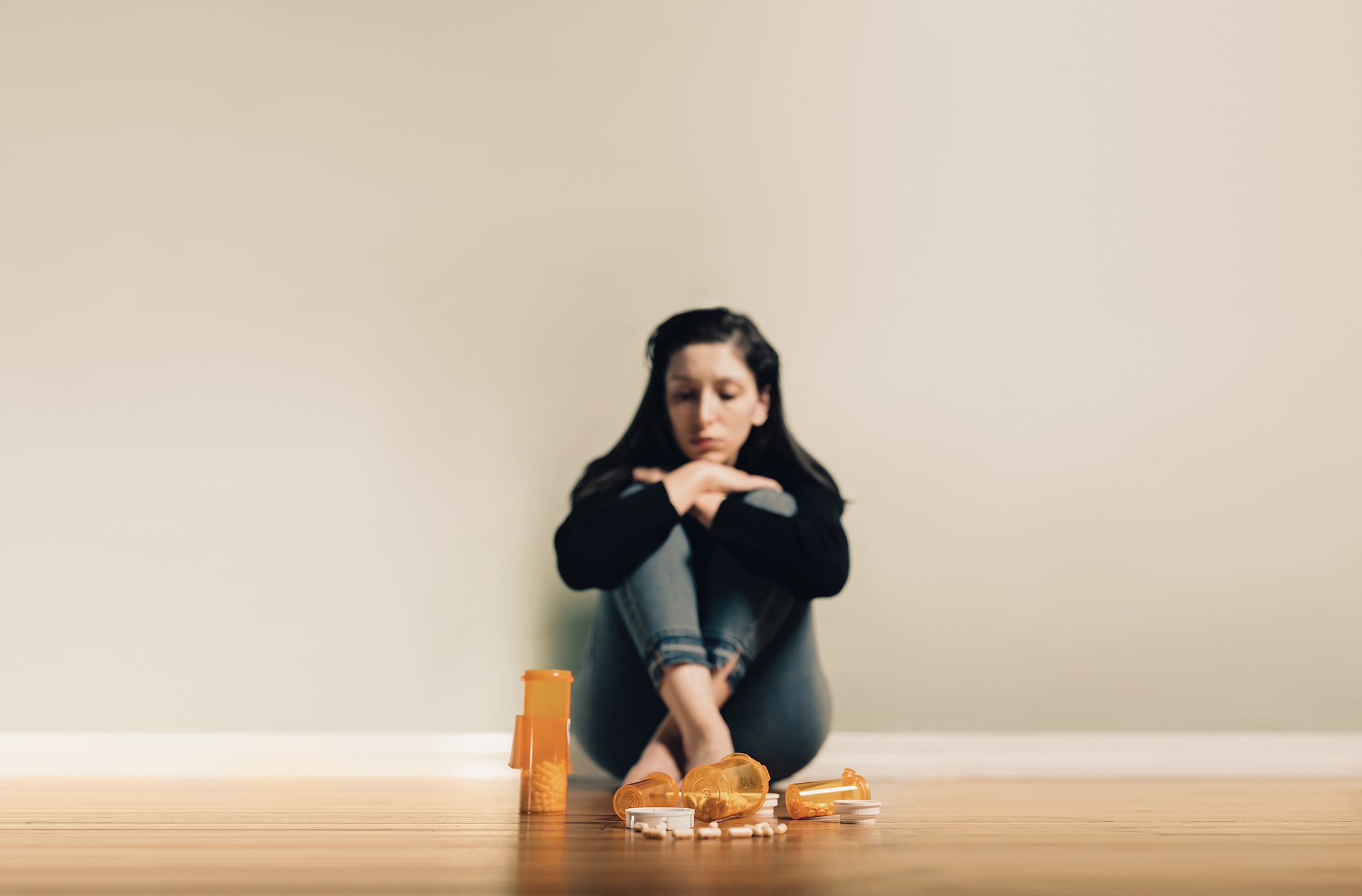Mental health industry watchdog, CCHR, insists doctors follow WHO guidelines, ensuring safe withdrawal from psychotropic drugs and provide non-drug alternatives.
LOS ANGELES - Dec. 18, 2023 - PRLog -- The newly released World Health Organization's guideline for mental disorders emphasizes non-pharmaceutical treatments as a primary approach and advises against prescribing antidepressants to children and adolescents. This is due to potential harms, such as increased discontinuations (withdrawal effects) and suicidality.[1] The U.S. Food and Drug Administration (FDA) already has a black box warning against prescribing antidepressants to those under 24 due to the risk of inducing suicidal thoughts. Despite the warnings, the Citizens Commission on Human Rights (CCHR) International points out that over 5.7 million Americans in this age group are still prescribed these drugs, as indicated by IQVia's Total Patient Tracker database.[2]
The WHO recommendation comes on the heels of its groundbreaking guideline with the United Nations, "Mental health, Human Rights and Legislation" launched in October 2023 which notes mental health must "take a new direction away from the narrow traditional 'biomedical paradigm' that has contributed to coercive" psychiatric practices. It further states: "Mental health services must make provisions for an adverse drug reactions register with a clearly defined procedure for reporting, and a well-documented process for addressing adverse outcomes."[3]
Those outcomes are debilitating, potentially fatal and are not limited to children and adolescents, CCHR documents.
Professor Peter C. Gøtzsche, M.D., an internationally renowned medical researcher, warns, "It is also wrong to give the impression that the increased risk of suicide stops when you turn 25," saying that clinical trials analyzed by the FDA in 2006 showed that "the suicide risk increased right up to the age of 40." Suicidal thoughts, he said, "can come at any time," when taking antidepressants.[4]
Placebo-controlled trials confirm that the suicide risk of antidepressants doubles in children and young people. But a 2019 analysis also showed that even in adults, the drugs not only double the risk of suicide but also completed suicides.[5]
In an article published in the British medical journal, BMJ, Gøtzsche goes further to say antidepressants can also increase not only the risk of suicide but also "violence and homicide at all ages." According to the FDA, "The following symptoms, anxiety, agitation, panic attacks, insomnia, irritability, hostility, aggressiveness, impulsivity, akathisia (psychomotor restlessness), hypomania, and mania, have been reported in adult and pediatric patients being treated with antidepressants."[6]
"In a systematic review of placebo-controlled trials in adult healthy volunteers, we showed that antidepressants double the occurrence of events that the FDA has defined as possible precursors to suicide and violence," Gøtzsche said.
CCHR questions why antidepressants are allowed to stay on the market, considering their serious adverse effects. They are also marketed as ineffective, "requiring" the addition of an antipsychotic as an adjunct therapy.
A recent study in Acta Psychiatrica Scandinavica found that combining antipsychotics with antidepressants actually increases the chances of rehospitalization or suicide. After two years, 42.3% of those in the combined treatment group were readmitted to the hospital or died by suicide, compared to 36.6% in the group using only antidepressants, which is also high. The addition of antipsychotics did not prevent the negative outcome and instead raised the risk of death and rehospitalization for individuals with a psychotic depression diagnosis.
The findings from a November 2023 JAMA Psychiatry study on over 2 million Medicaid patients aged 5 to 24 showed that using high doses of antipsychotics was associated with a higher risk of death. The patients filled nearly 2.8 million prescriptions for such high doses. The study results revealed, "For higher doses, antipsychotic treatment was significantly associated with overdose deaths and other unintentional injury deaths."[7]
CCHR says U.S. doctors should take the same initiative as a group of 31 experts in the United Kingdom. This group, comprising medical professionals, researchers, patient representatives, and politicians, recently urged the UK government to reverse the decade-long increase in antidepressant prescriptions. The authors, who include a former health minister, wrote: "Rising antidepressant prescribing is not associated with an improvement in mental health outcomes at the population level, which, according to some measures, have worsened as antidepressant prescribing has risen." They suggested that the £58m (US$74 million) spent on antidepressants each year in England could be better spent on boosting non-pharmacological treatments.[8]
The UK group also wants withdrawal services and a national 24-hour prescribed drug withdrawal helpline to be funded to support patients who are coming off antidepressants. About 50% of patients taking antidepressants experience withdrawal effects when they try to discontinue use.[9] The WHO says support must be provided to help people safely withdraw from psychotropic drugs, and "Medical professionals have the obligation to inform persons" of the "right to initiate a process of discontinuation and to be supported to do this safely."[10]
CCHR adds that informed consent must also include that there isn't a single medical or scientific test that can determine if you have a mental illness. As Frontiers in Psychiatry reported, "Mental illness diagnostic criteria are made based on assumptions."[11] With such consent provisions, consumers are not misled into believing psychotropic drugs are treating or correcting a physical illness like diabetes but are prescribed to alter behavioral and emotional symptoms.
[1] https://www.psychologytoday.com/us/blog/side-effects/202311/new-mental-health-guidelines-from-the-world-health-organization
[2] https://www.cchrint.org/psychiatric-drugs/people-taking-psychiatric-drugs/; https://www.cchrint.org/psychiatric-drugs/children-on-psychiatric-drugs/; https://www.fda.gov/drugs/postmarket-drug-safety-information-patients-and-providers/suicidality-children-and-adolescents-being-treated-antidepressant-medications
[3] https://www.cchrint.org/2023/09/18/who-guideline-condemns-coercive-psychiatric-practices/ citing: https://www.ohchr.org/sites/default/files/documents/publications/WHO-OHCHR-Mental-health-human-rights-and-legislation_web.pdf, pp. xvii, 58
[4] https://www.madinamerica.com/2023/11/the-lie-that-antidepressants-protect-against-suicide-is-deadly/
[5] https://www.madinamerica.com/2023/08/antidepressants-increase-suicide-attempts-in-youth-no-preventative-effect/; https://karger.com/pps/article/88/4/247/283160/Newer-Generation-Antidepressants-and-Suicide-Risk
[6] https://www.bmj.com/content/358/bmj.j3697/rr-4
[7] https://www.uspharmacist.com/article/risk-of-death-in-youth-with-higher-antipsychotic-doses; https://jamanetwork.com/journals/jamapsychiatry/article-abstract/2811866
[8] https://www.bmj.com/content/383/bmj.p2873
[9] https://www.bmj.com/content/383/bmj.p2873
[10] https://www.cchrint.org/2023/09/18/who-guideline-condemns-coercive-psychiatric-practices/, citing: https://www.ohchr.org/sites/default/files/documents/publications/WHO-OHCHR-Mental-health-human-rights-and-legislation_web.pdf, p. 58
[11] https://www.frontiersin.org/articles/10.3389/fpsyt.2022.860487/full
Contact
Amber Rauscher
***@cchr.org
Photos: (Click photo to enlarge)

Source: Citizens Commission on Human Rights International
Read Full Story - New World Health Organization Guidelines Urge Non-Drug Mental Health Services | More news from this source
Press release distribution by PRLog
New World Health Organization Guidelines Urge Non-Drug Mental Health Services
December 18, 2023 at 11:03 AM EST